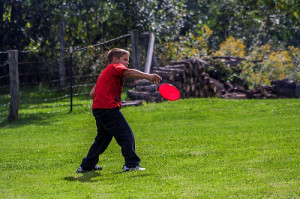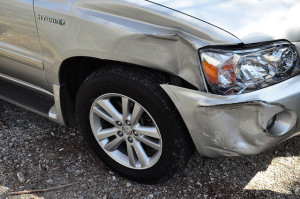 Just because a child is old enough to occupy themselves, doesn’t mean that they should be expected to do so the majority of the time. Host families have a certain expectation of activity and involvement for their children. Get the kids engaged and active. You can be more fun than the TV or video game.
Just because a child is old enough to occupy themselves, doesn’t mean that they should be expected to do so the majority of the time. Host families have a certain expectation of activity and involvement for their children. Get the kids engaged and active. You can be more fun than the TV or video game.
Problem:
But, my kids don’t want to do anything but watch TV or play video games.
Solution:
Instead of saying – “Would you like to (fill in the blank with any activity)? The answer will often be, “No.”
Try this – “Now we are going to (fill in the blank with any activity.) or “Would you rather do ___ or ____?” (Make sure both the choices are things you approve of.)
Your chances of co-operation are greatly increased. Even kids who are reluctant to try new things will usually get in the spirit of things and have fun, if you pick a good activity.
Problem:
I don’t know what to do with school age kids?
Solution:
Here are a few easy ideas to start with. Look for more on the internet and the library. Google “activities school age kids” or “activities tweens”
-Cooking
-Making things (check craft stores like Michael’s for kits and models that are age appropriate)
-Going fun places (there are all kinds of great places in the local area including pottery making, jewelry making, farms, museums and more)
-Sports (soccer, tennis, swimming, bicycling, roller skating, ice skating, and more)
-Visit places in the area like the library, museums and attractions in DC, mini-golf and go-karts
-Let them teach you to do something they enjoy. Kids this age love being the expert.
-Get outdoors and visit local parks. You can even make a project of reviewing all the local parks (what kind of equipment they have, is there shade, water fountain?) They can write this up and keep, so they remember which ones they want to go to again and which ones to skip in the future.
-Let them help you search and plan some activities.
-Check on the APIA Pinterest Page and here on our cluster blog for ideas.
-If your host children are in scouts, find out if there are things that they need to complete that you can work on with them. Even if they are not in scouts, I suggest you check your local library for Cub Scout Handbooks (Tiger, Wolf, Bear & Webelos.) They are full of activities appropriate for boys (and girls) from age 7-11.
-If you have a GPS, try taking them geocaching. Here is a website with all the details.
Note: Always get permission from your host parents before taking the kids places.

